Understanding the power of your travel choices.
Ethical travel (ethical tourism) means understanding the impact, both good and bad, that our travel decisions have on the environment and on the communities we visit and acting in ways that create positive outcomes.
In recent years the concept of ethical traveling has been receiving a lot more attention from mainstream media.
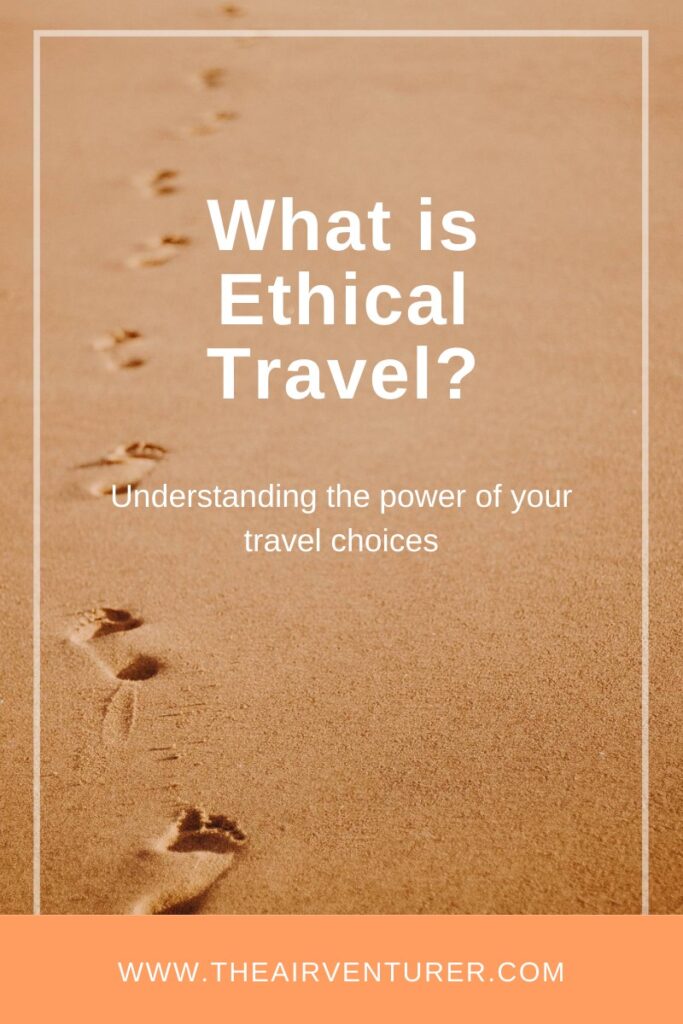
With attention and lots of media coverage, also came confusion and the idea that ethical travel is something illusive to the individual.
Something that can only be achieved by large organizations with the resources to have an impact.
It may seem so because travel companies and promoters use big words to describe everything they do to be ethical and sustainable.
Being an ethical traveler is a lot easier than that. It’s in all the simple things we do every day, even when we don’t travel far from home.
Why it matters
Recently many shocking events have caught the attention of people Worldwide and we’re finally beginning to realize how much our travel habits can change everything around us.
From child labour to sex tourism and animal abuse, displaced populations and women forced into prostitution, these things have been taking place for a long time almost becoming parallel branches of the tourism trade.
One such event in recent years has been the heartbreaking story of the Tiger Temple in the Kanchanaburi province in Thailand.
We must never allow such horrible stories to happen again. We must learn how to use our privileged position as travelers to fight against them.
The power of your travel choices
You might think that you can’t do anything about it. You’re just a simple vacationer wanting to forget about problems in those few days away from work.
What if I told you that you can adopt simple practices today that will not only help the communities you visit, but will also improve your experience and that of other travelers?
Impact on local economies
Some of the most important decisions you’ll make when you travel, will be how you spend your money.
These decisions not only have a great impact on your budget and experience, they also shape the way tourism is impacting the local economy. Therefore it is critically important for you to be responsible with your money.
By supporting local businesses you directly help communities grow and improve their quality of life.
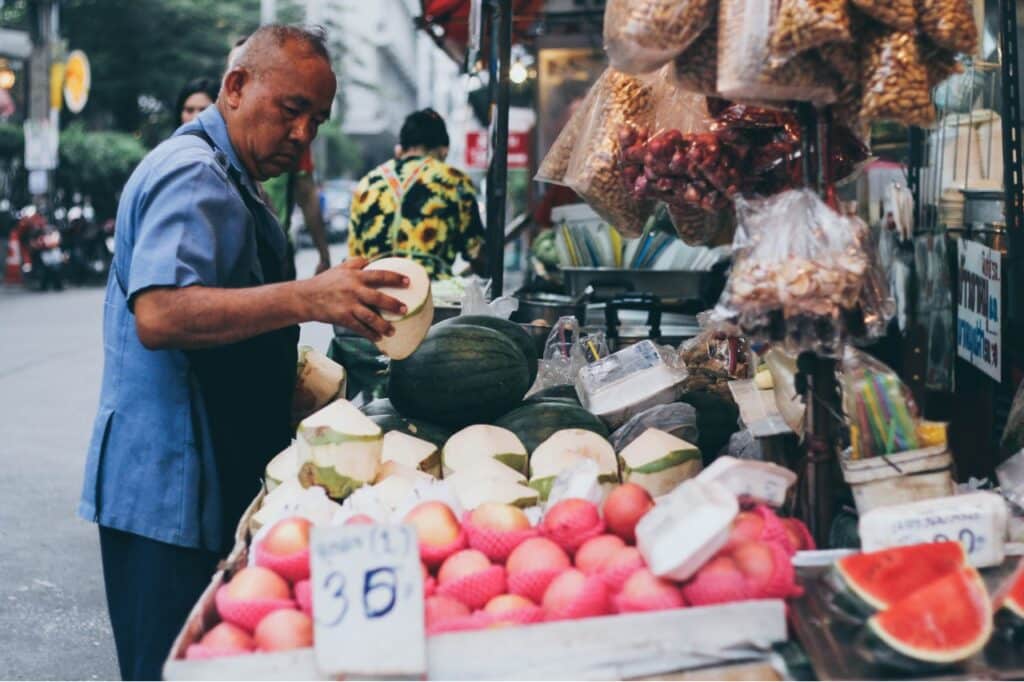
This in turn creates local jobs, which means families can afford education and healthcare for their children.
Their children grow in healthy environments, they stay out of trouble, grow up to further develop local businesses or get highly skilled jobs. All this improves the larger economical environment.
Better economy, means better infrastructure and services.
Obviously reality is much more complex but you get the point. How you spend your money when you travel can have a huge impact on the places you visit and the people that live there.
Stay in local hotels instead of big chains, eat in local restaurants and enjoy local cafes.
If you want to buy souvenirs, please don’t do it at the airport. Instead, interact with locals in markets and directly contribute to their livelihoods. It is much cheaper also.
Human rights
We know that tourism can bring fantastic benefits to communities and to their soul – the people. However, as one of the fastest growing industries, tourism also has the potential of doing great harm.
As tourism grows, populations can suffer if they find themselves “in the way” of greedy development projects.
This is especially true in poorer nations, where governments fail to protect the rights of their citizens. Such unfortunate events happen in the pursuit of quick win foreign investments that don’t consider long term effects on the community.
In many cases people find themselves forced to leave their homes and lands to make way for new construction sites. Many end up in extreme poverty, with their livelihoods endangered and with children facing an uncertain future.
The other aspect of such projects is the unequal distribution of returns. In most cases foreign investors drain the local community of its resources, transform it into a sterile and impersonal travel location and provide nothing in return.
They employ locals and pay them very small wages. Local families are so poor that they have to send their young children to work, who in turn miss on education.
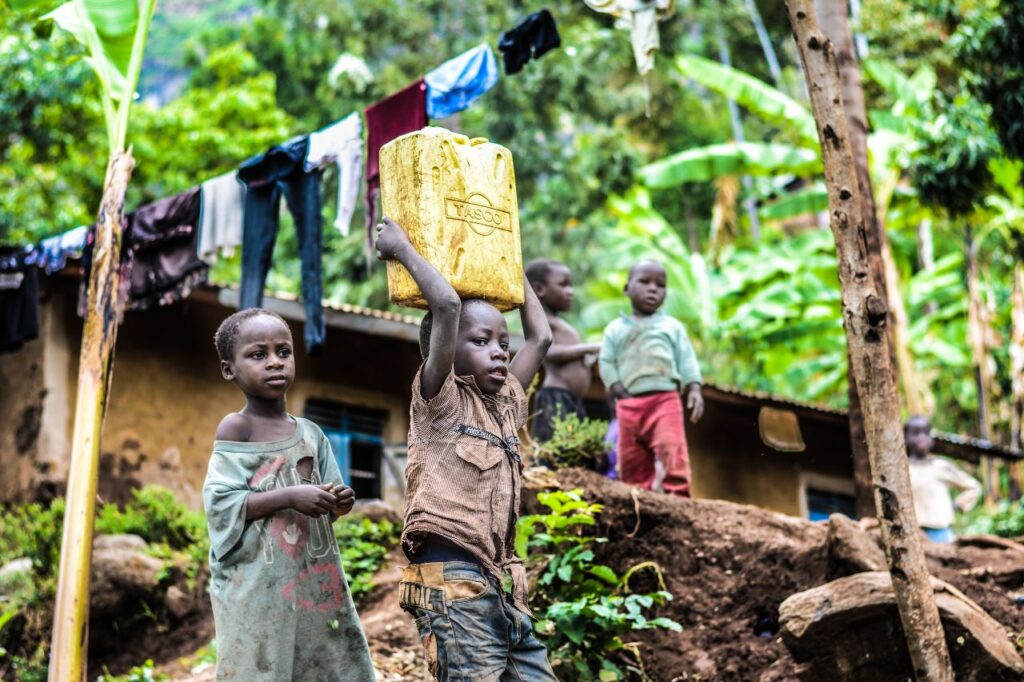
Tourism becomes a nightmare for locals instead of providing a meaningful experience for visitors and a sustainable, happy existence for locals.
In the last couple of decades we have also witnessed the uncovering of a very dark phenomenon in various parts of the planet. Human rights violations in tourism have included exploitation of women and children as sex slaves.
The underlying causes of sex exploitation are extreme poverty and social inequality, with most victims being women and children from poor or developing countries.
This phenomenon continues to be a problem even with tougher laws against such abuse. High level corruption in governments and law agencies means that applying the rules can be very difficult even when there is willingness to do so.
Care for the Environment
As a traveler, your care for the environment can manifest long before the actual journey begins.
There are easy steps you can take to prepare for a memorable experience that will not have a heavy impact on Mother Earth.
One of the most important steps is planning your travel. If you have to fly to your destination, try to fly direct instead of using layovers.
Don’t get me wrong, I love to fly. I have always been fascinated by aviation and the flight will always be one of the most exciting parts of the journey for me.
However, I am also aware that flying is quite heavy on your carbon footprint and pretty difficult to offset.
And it’s not just the flight itself. Airports are very heavy pollutants and besides noise and fumes, they generate tons of garbage.
Therefore, choose your flights carefully and try to avoid internal flying. Use trains, buses, boats (sailing is amazing) and other means where possible.
Reduce your carbon footprint by packing light. For instance, the heavier an airplane is, the more fuel it needs to burn.
Do some research and choose the most responsible airline and travel provider available to you.
If you need to rent a car, make sure you get just what you need and don’t waste resources. I often see couples driving huge SUVs or thirsty muscle cars. So unnecessary!
When you leave your hotel room, make sure to turn off all the lights and the air conditioning system. Also, instruct the staff not to change towels and sheets every day. This massively helps reduce your carbon footprint.
Better yet, you can have the do not disturb sign on your door for days at a time. My wife always does that when we travel.
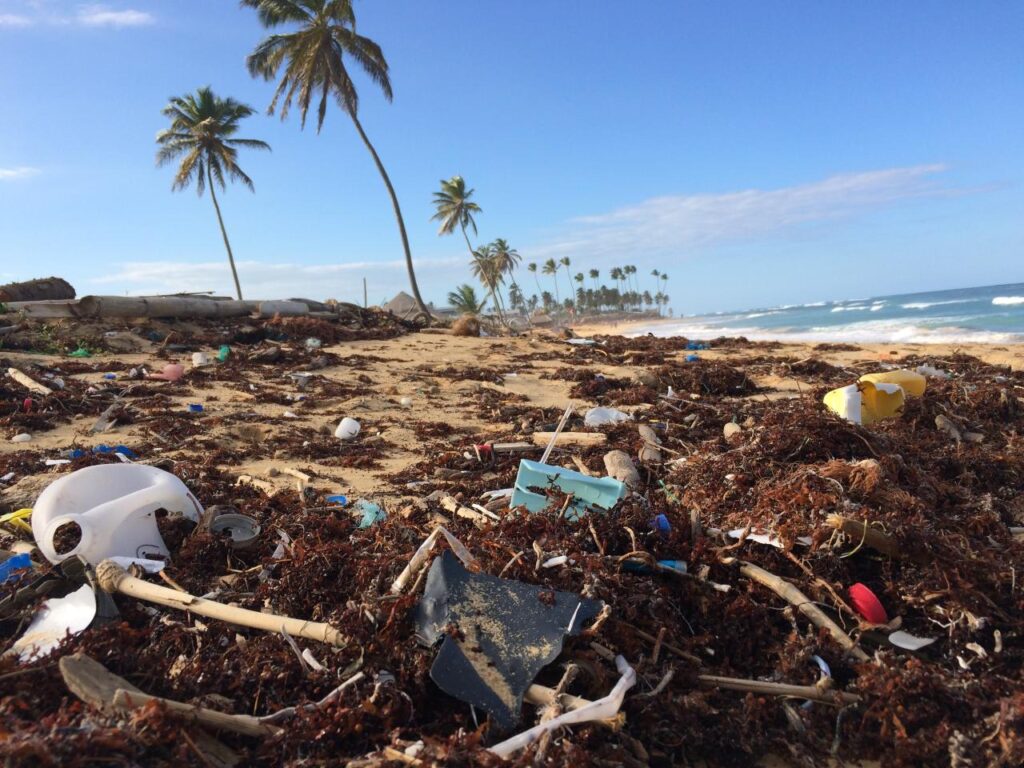
Have a reusable water bottle and coffee mug, make sure you never use plastic. Many countries don’t have recycling programs at all so be mindful.
If the tap water at your destination is not drinkable, make sure to have a travel water filter.
Never litter the places you visit, that goes without saying. But why not pick up any litter you might find along the way? I just grab a garbage bag from my accommodation and try to bring back as much as I can, leaving the World cleaner behind me.
Pack a reusable grocery bag. I have one that I also use as a beach bag, gym bag and basically everything bag. Never use plastic bags!
These are just a few easy steps you can take to reduce the impact of your travels on the environment.
According to the UNWTO, in 2019 there were 1.5 billion international tourist arrivals recorded worldwide. This figure puts into perspective the importance of adopting ethical travel habits.
Wildlife and animal cruelty
Let’s be honest, this is a trap most of us fell into at least once in our travels.
The cute monkey you saw walking on a leash, the elephant “sanctuary” you visited for a promised spiritual transformation, a tiger or a lion trained to be still for photos, chained up and hopelessly staring into nowhere.
Along my journeys I’ve seen all sorts of animals being used as photo props, from camels to bears you name it.
Don’t be too harsh on yourself though, it’s natural to be attracted by the opportunity of getting close to animals. We love animals and we want to be near them, especially those we see as exotic.
Next time you find yourself in a similar situation, please think of the following thing. What impact do my curiosity and my behaviour have on the quality of life of these animals?
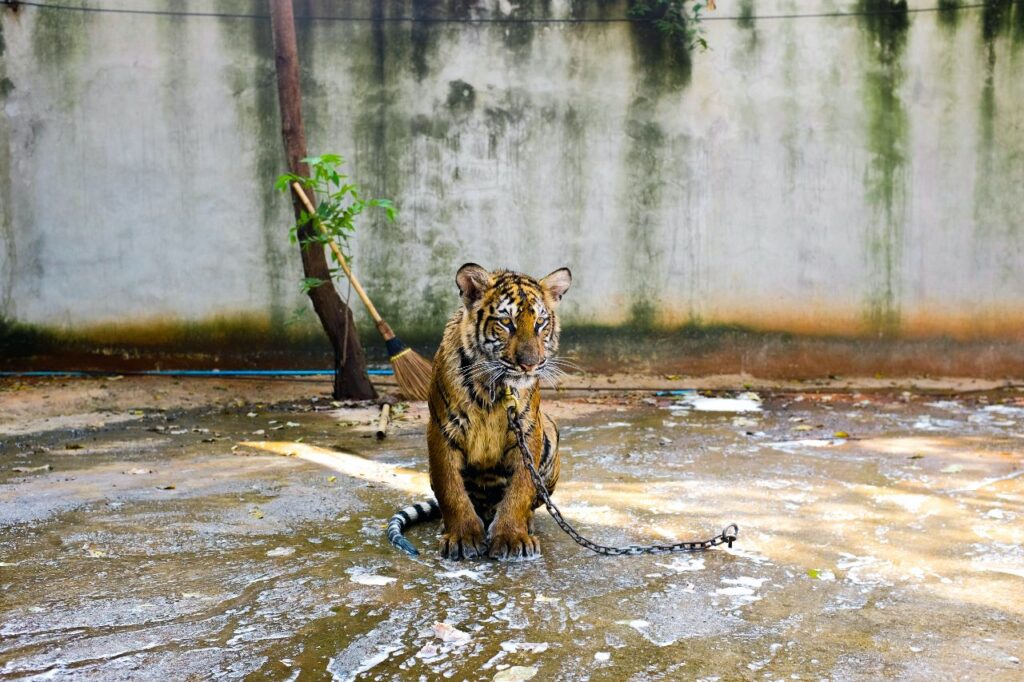
You might think that paying a couple of dollars to take a selfie is innocent. However, our seemingly harmless decision practically condemns these animals to a life of abuse and cruelty.
They are victims of violence, kept in inappropriate conditions, many are drugged so they can be handled, exploited until they are too sick to “perform” which ultimately means they will be killed.
Please, next time you plan to visit an elephant sanctuary or tiger temple in Thailand, do some research. You might be shocked by your findings.
Instead visit places where local authorities and park rangers protect natural habitats. What better way to learn about wild animals than in their wonderful state of freedom?
Racism
We must all be aware that traveling is not the same amazing experience for everyone! Acknowledging that racism in tourism is real represents the first step on a complicated journey.
As a white man living in Western Europe with an European Union passport, I am privileged and for many years I didn’t even realize that.
It’s difficult to see from a position of privilege (such as being white), but we live in a society that has fundamental institutional flaws which enable racism.
That’s why it is important to accept our personal view might be flawed and get educated on the issues black and ethnic minorities face.
In the tourism industry, racism is experienced both by travelers and locals alike. Racism is so deeply embedded in our lives that many times we don’t even realize it’s happening.
Let’s do a simple exercise: think of adverts to luxury destinations around the World. Have you ever seen a black family as the main characters of such a marketing campaign?
Think of a marketing campaign for golf resorts in Scotland. Although one of the best golf players in the World is black, have you ever seen a black man or woman feature in an ad?
Imagine an advert for a safari trip, can you see that the tourists having a great time are all white? And that the driver is always a black male?
This topic will have many more articles on my blog as I continue to discover more about my own biases and those I see around me.
Here are some easy steps I am taking right now to be more proactive in the fight against racism:
- Ask all my travel partners and providers what they do to fight racism in travel. At the very least, it makes them think about it and perhaps understand their own racial biases.
- Ask the companies that want to work with me if they have black and ethnic minorities in their leadership. If yes, I ask if it’s possible to have them as my contact so I can learn even more about this issue.
- Research about the racial and social history for all my destinations. This helps me be more aware of the environment and most importantly will help me spot racial discriminations so I can openly condemn them.
- Evaluate carefully any events that invite me for local culture displays. Are they genuine appreciations of traditions or just a product created by travel companies to make money?
- Use my money to help the cause. I proactively look for hotels, restaurants and other businesses held by the black and ethnic minorities community. This is much easier than you think, with Google and Facebook groups being great sources.
Cultural awareness
Now that we’ve discussed how to discover truly meaningful cultural experiences, I want to raise awareness about enjoying them in a respectful and sustainable manner.
As with every decision in life, a bit of research can make a big difference for your personal experience and the mark you leave on those you interact with.
One of the most obvious examples is wearing inappropriate clothes when visiting religious sites. If you don’t have time to research, ask the hotel staff before you visit.
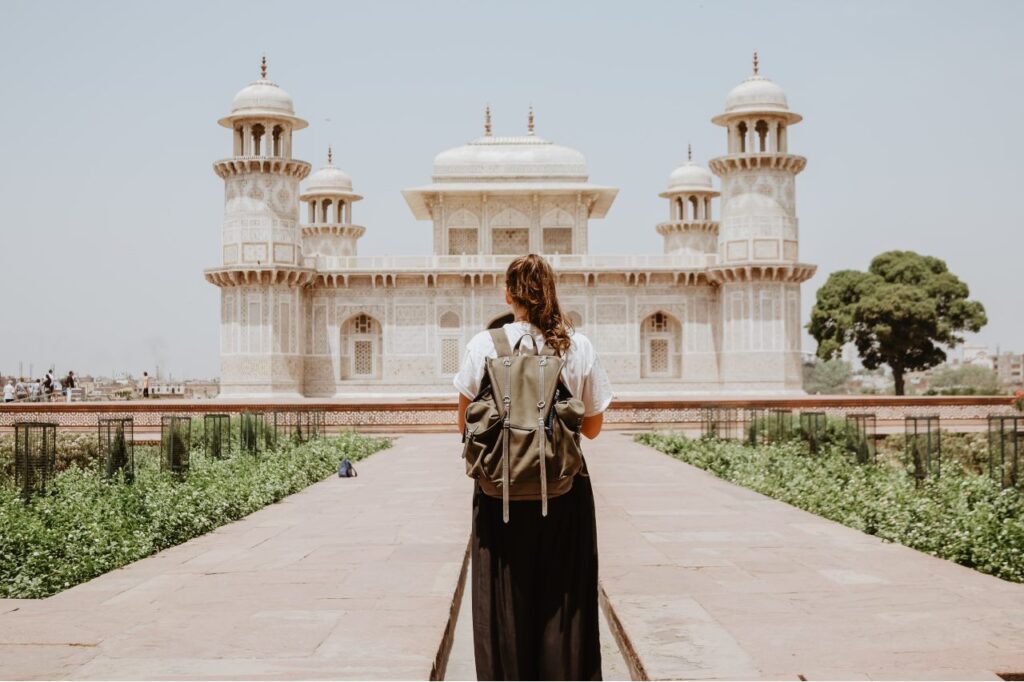
If you like to sunbathe, make sure your presence does not offend locals. In some places topless sunbathing might be illegal.
Try to learn and understand at least at a basic level the history and traditions of the area you’re visiting.
This will not only enrich your experience but it will also enable you to discern between truly beautiful and respectful interactions with locals and cheap meaningless exploitation of cultural treasures.
All too often I see travel agents advertise template-made tours through remote areas of Australia or group visits to see African tribe displays.
These companies have taken marvels of culture and transformed them into cheap products they sell in bulk through middle men.
The locals have nothing to gain from these and you as a traveler will certainly feel ripped off in the best case scenario.
Another important aspect is photography. You need to be courteous and respectful when taking photos and if you want to capture local life please ask before.
If you don’t speak the language it’s generally no problem. Most people will be happy to show you aspects of their life and will be happy for you to take away memories as long as you’re respectful.
Conclusion
Although ethical travel is a complex issue, I hope you now see how easy it is to bring positive change around us by simply being aware of our decisions.
Keeping an eye on our travel attitude is the key to not only being more ethical but also to improve our own experiences.
On a personal note, once I realized how lucky and privileged I am to be traveling and adopted this shift in attitude, I started having much more meaningful travel experiences.
I started meeting fascinating people wherever I went. Whether it was on vacations or business trips, I began to truly connect with locals and learn about their life and culture.
What to read next:
- Best resources to help you prepare for Global travel during Covid-19
- How to choose a Frequent Flyer Programme
- How to collect miles without flying
- Washington DC – Ideal first trip to the United States
What are your thoughts around ethical travel? Are you already applying any ethical travel habits on your journeys? Please comment below 😊
Do please share this post if you found it useful and remember to always seek personal growth by exploring the World responsibly.



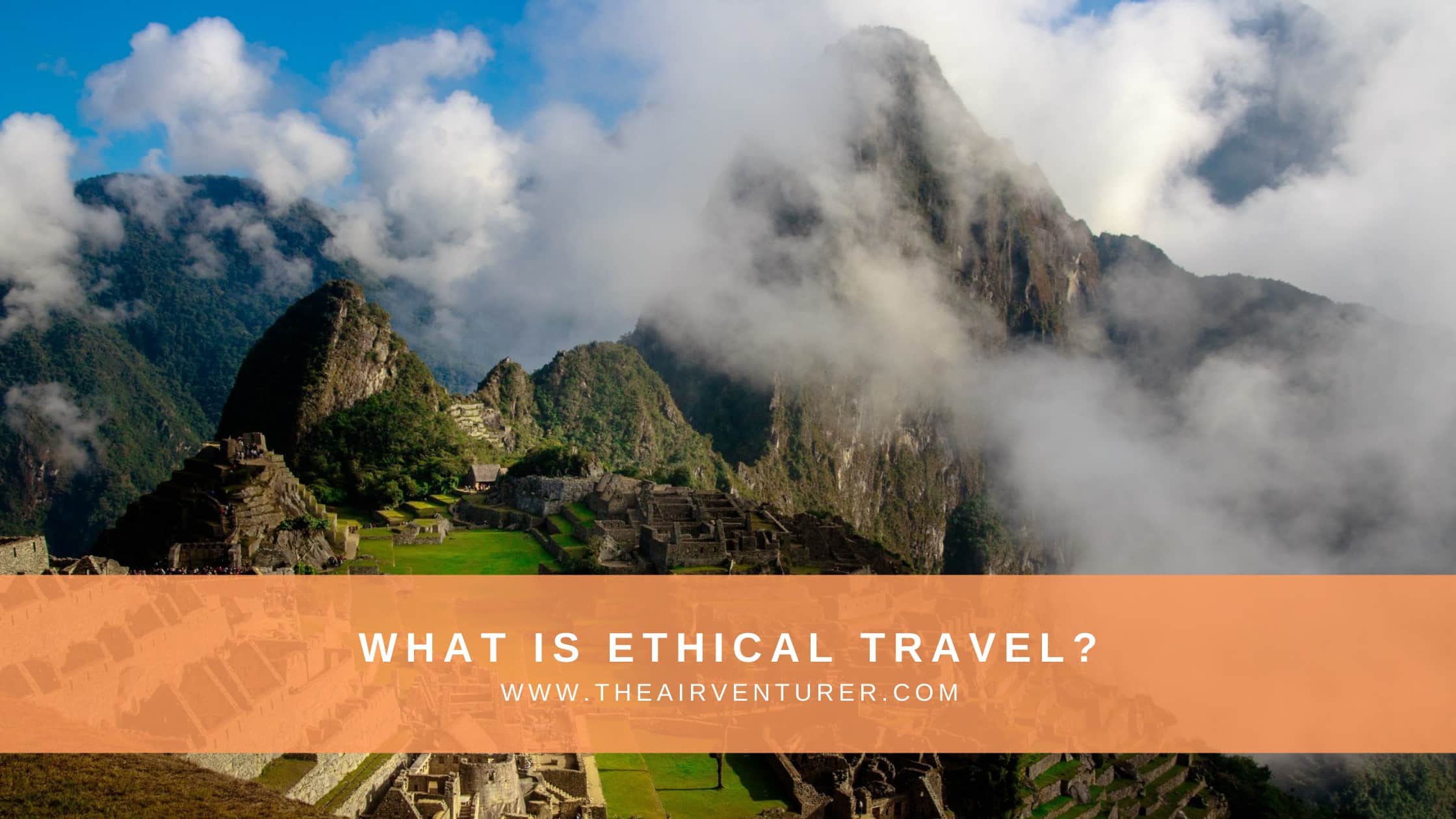
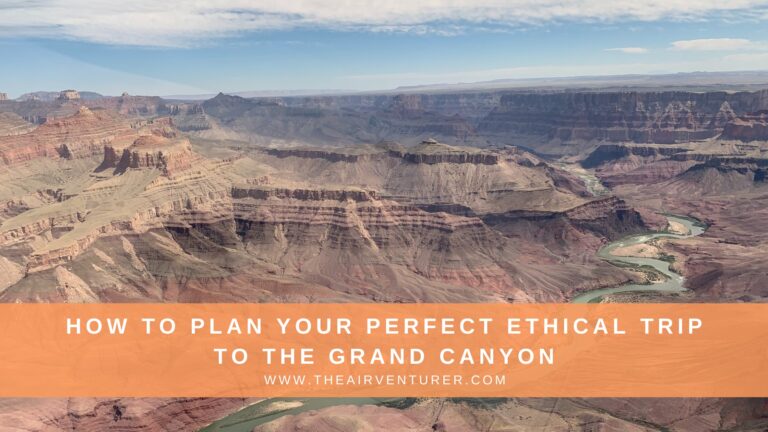


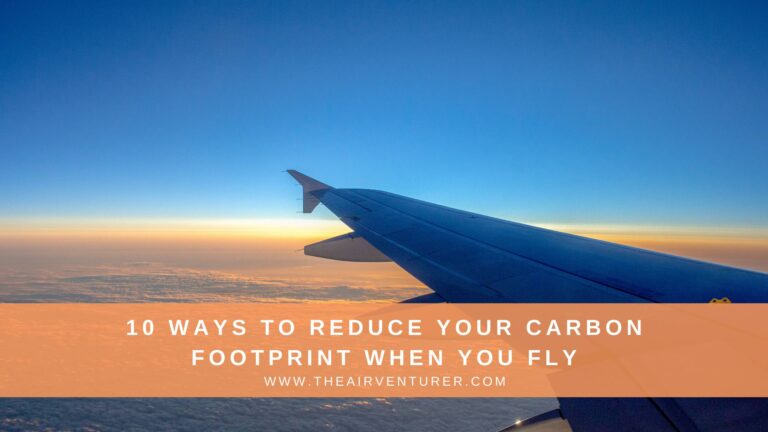
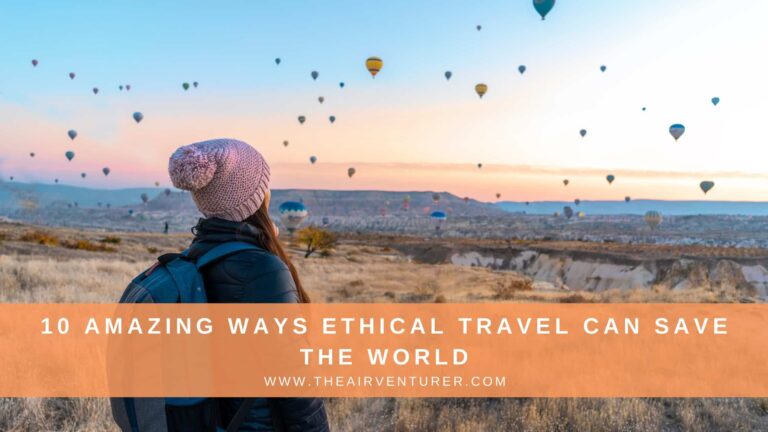
As someone who loves travelling, this article is well appreciated. I have to be honest and say when I started travelling in my early 20s, these weren’t in my mind but as I matured and my perspective opened, I see the impact of tourism to famous landmarks and to places like the beautiful paradise I call home (Philippines). One of the activities I enjoy now is plogging and would defo recommend this to ALL, whether travelling or not.
Thank you Marje, these are some fantastic points! Along my journeys I have also seen the effects of irresponsible tourism on both natural and man-made wonders. I definitely recommend plogging even for local areas.
Hey Airventurer,
This was a super powerful post. Every single point made is absolutely relevant and certainly has given us much to think about. Thank you for sharing 🙂
Thank you very much for taking the time to read my thoughts on this matter. I will definitely continue to post updates as I follow my personal journey into ethical travel.
Wow! There are areas within this article I had not thought about when travelling. Thanks for highlighting in such detail.
Thank you very much Tanya. I am curious, did you find anything you’re already doing about these topics?
Great read! Glad to see you bringing to light some of the things a lot of tourists probably do not think of. I totally agree about cultural awareness.
Thank you Fiona, I think the most important thing is to understand how easy it is for all of us to take decisions that have a positive impact.